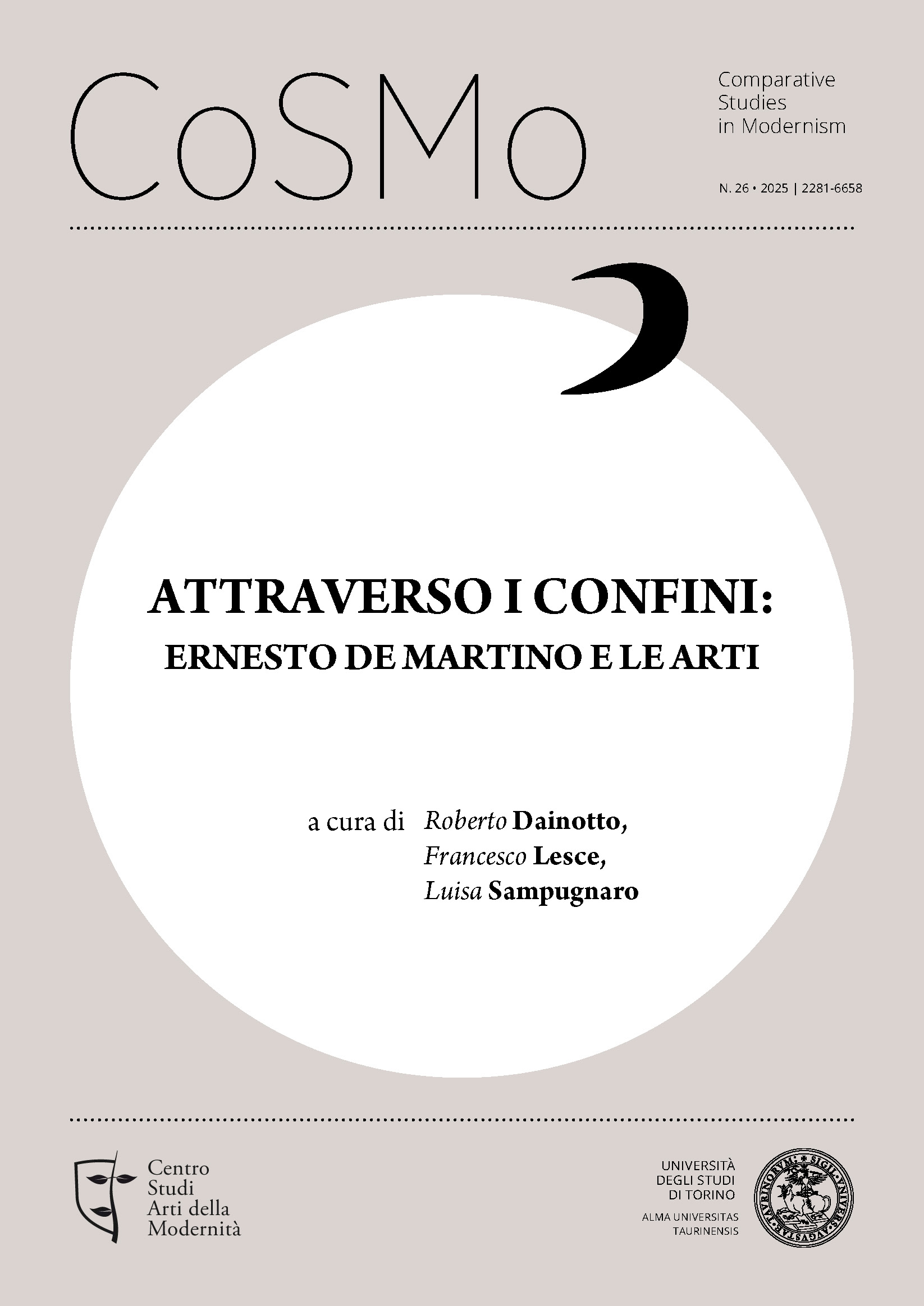Lamentation and Lay Symbolism in De Martino and Pasolini
DOI:
https://doi.org/10.13135/2281-6658/12169Parole chiave:
Progressive folklore, Historicism, Secular symbolism, Mourning and Lamentation, GramsciAbstract
This essay examines the complex intellectual relationship between Ernesto de Martino and Pier Paolo Pasolini, focusing on their shared yet divergent engagement with folk poetry, lamentation, and secular symbolism. Despite their common affiliation with Marxism and Gramscian thought, Pasolini and de Martino developed distinct methodologies: de Martino’s “progressive folklore” emphasized the political and existential dimensions of popular culture, while Pasolini interrogated the aesthetic and ideological layers of folk expressions, stressing their subordination to hegemonic forms. The study explores how Pasolini, through works like Canzoniere italiano and The Ashes of Gramsci, critically reworks de Martino’s historicism by emphasizing irreducible residues of human experience, mourning, and contradiction within history. It also highlights Pasolini’s secular reinterpretation of symbolic forms—such as the red flag—in poetry and cinema, contrasting it with de Martino’s anthropological framework. Ultimately, the essay uncovers a paradoxical affinity between the two thinkers: a shared concern for the existential crises of subaltern communities, and a mutual, though differently articulated, resistance to the abstraction and rationalization of human experience.
Downloads
##submission.downloads##
Pubblicato
Fascicolo
Sezione
Licenza
Gli autori mantengono i diritti sulla loro opera e cedono alla rivista il diritto di prima pubblicazione dell'opera, contemporaneamente licenziata sotto una Licenza Creative Commons - Attribuzione che permette ad altri di condividere l'opera indicando la paternità intellettuale e la prima pubblicazione su questa rivista.






